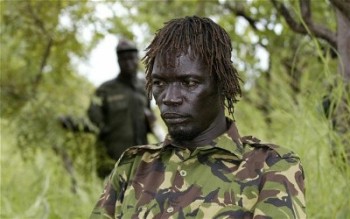No more amnesty for rebels, says govt
By Online Team
4th June 2012:
The UN’s news agency IRIN has reported that the government has pulled the plug on the Amnesty Act which, since 2000, has enabled the grant of a blanket amnesty to more than 26,000 members of armed groups, especially members of the Lord’s Resistance Army (LRA).
The Act was passed as part of efforts to end hostilities in northern Uganda and bring the LRA to the negotiating table. Over the following six years, several detailed accords were drawn up but LRA leader Joseph Kony repeatedly refused to sign a comprehensive peace agreement.
“There will be no blanket amnesty for anyone now,” said Internal Affairs Minister Hilary Onek, who on 25 May used his prerogative to allow significant sections of the Amnesty Act to lapse.
“The rebels have to go through the courts and legal process. The courts will evaluate each individual case and decide whether to prosecute or grant amnesty,” Onek told IRIN.
Onek explained that the move followed a judicial review of the act, which found it to be in contravention of both domestic and international law. New legislation on justice and accountability will be drafted over the coming year, he said.
Sections of the Act relating to the reintegration and resettlement of those granted amnesty over the past 12 years remain in force, while the mandate of the Amnesty Commission has been extended for a year to facilitate these activities.
But it will no longer have the power to issue amnesty certificates to rebels who surrender and renounce their armed struggle.
Members of some 29 armed groups have benefited from amnesty to date, about half of them from the LRA, which is now thought to have just a few hundred fighters active in the Central African Republic (CAR), the Democratic Republic of Congo (DRC) and South Sudan.
Director of Public Prosecutions Richard Buteera told local media that his office was only interested in prosecuting senior LRA commanders who had committed atrocities, and that lower-level forcibly recruited members should have no fear about leaving the armed group.
The amnesty lapse has a direct bearing on the cases of two senior LRA members: Caesar Acellam Otto, a commander who was captured in CAR on 12 May and who subsequently insisted on his eligibility for Amnesty; and Thomas Kwoyelo a mid-level commander captured in DRC in 2008.
Radhika Coomaraswamy, the special representative of the UN secretary-general for children and armed conflict, has called for Acellam – “one of the worst perpetrators of child rights violations” – to be prosecuted rather than given amnesty. This “would send a strong message to the LRA leadership that they will be held accountable for their actions”, she said.
In 2011 Kwoyelo was the first person to be prosecuted in the new International Crimes Division of Uganda’s High Court, even though he was in theory eligible for amnesty because the only people explicitly excluded from the Act’s provisions are Kony and four other commanders who have been charged with war crimes by the International Criminal Court.
Mixed reactions
Stephen Oola, a transitional justice and governance analyst at Makerere University’s Refugee Law Project, told IRIN he believed the process of ending blanket amnesty had been irregular. “It was unconstitutionally done by politicians and technocrats without putting in mind the lives” of those still held captive by the LRA.
“The lapse of blanket amnesty means there is no more opportunity for those fighting against the government to renounce rebellion,” he said. “There will [now] be selective prosecution. It will all depend whether the state has interest in an individual case or not and what evidence is available. This will contravene the rule of law,” he added.
The Acholi Religious Leaders’ Peace Initiative, which continues to campaign for a negotiated rather than military resolution to the LRA conflict, also expressed dismay at the development.
“The Act has been fruitful. It has been encouraging those who were taken by force to manoeuvre ways of escaping from the bush in order to benefit from the law,” said Initiative member and Bishop John Baptist Odama.
“If they stop the law, many of those people will perish in the bush with nowhere for them to go [to surrender],” he said. “Parliamentarians, especially those from LRA-affected areas, should [push] for the continuation of the law,” he added.
Betty Aol Ochan, a Member of Parliament from Gulu, echoed the Bishop’s view, saying: “If it [the Act] is stopped, we are going to discourage them to come out. This will also worsen the situation.”
But fellow member of the Acholi Parliamentary Group Lowila Oketayot disagreed: “I believe there is a beginning and end of everything. We need to weigh the pros and non-pros of the Act. We can’t continue for eternity…those [LRA members] who have been serious have [already] surrendered. I don’t think there are still rebels out there who want to surrender,” he added.
Rebecca Amuge Otengo, the state minister for northern Uganda, said people should not confuse reconciliation with impunity. “It is better the Act has expired. I believe in reconciliation but not impunity. Whoever does something should be made to answer,” Otengo said. END. Please login to www.ugandacorrespondent.com every Monday to read our top stories and anytime mid-week for our news updates.
![]()


